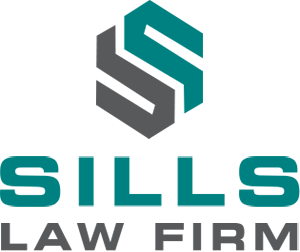What Is a White Collar Crime?
From money laundering to tax evasion, there are numerous crimes considered to be “white-collar,” and they occur in places ranging from large corporations to residential homes. These crimes often involve a well-respected member of the community and victims that range from an entire business to a large group of people. White-collar offenses are taken very seriously and can lead to serious consequences. In fact, due to the often high-profile nature of the cases, prosecutors and judges may seek to make an example out of the accused.
WHITE COLLAR CASES WE HANDLE IN CONNECTICUT
- Fraud
- Forgery
- Identity theft
- Counterfeiting
- Money laundering
- Falsifying records
- Extortion
- Embezzlement
- Insider trading
- Copyright infringement
- Piracy
- Trade secret theft
ACCUSED? CALL (860) 524-8118 TO DISCUSS YOUR CASE WITH OUR CONNECTICUT WHITE COLLAR CRIME LAWYERS NOW!
What is a White Collar Crime?
Federal law enforcement agencies can get involved in all sorts of criminal investigations and cases, but nothing catches the attention of the government like a serious white collar crime. By definition, white-collar crime is a criminal act that exploits or steals from a large number of people or corporations, especially if the act does not include any sort of violence or intimidation. The name derives from the notion that people in business suits with white collars are the most likely to commit a crime of such complexity and subtle nature.
A white-collar crime garners federal agency attention due to the fact that the amount of resources stolen or people exploited is usually quite massive. Additionally, someone who is capable of committing a white collar crime could potentially attempt to do it again and only get better at it as time goes on. By cracking down severely at the first mention of a white collar crime, law enforcement groups try to nip the problem in the bud, so to speak.
Examples of White Collar Crimes that Frequently Reach Courtrooms
- Fraud: A generalized term for the basic groundwork of most white collar crimes, fraud can also be a specific charge for attempting to use deceit or deceptive language in contracts to gain the resources of another party.
- Counterfeiting: Money counterfeiting is extremely difficult but not impossible. Federal agencies are experiencing new counterfeiting issues in the digital age as more people use alternate currencies, like Bitcoin transactions.
- Money laundering: When illegitimately gained resources are moved through a legitimate business, it is known as money laundering. This white collar crime is popularly used in media entertainment, such as a small diner hiding a gambling ring in the basement.
- Embezzlement: Company executives or presidents that steal from their own business’s coffers commit embezzlement. This crime is often first detected by company accountants, who will then require whistleblower protections when reporting it to an investigative agency.
- Insider trading: The stock market relies heavily on the honesty of those who use it for income and profits. Insider trading is the act of buying or selling stocks with knowledge not yet released to the public. For example, a soda company fails a safety inspection at all of its manufacturing plants. Before the reports are shown to the public, family members of the company president suddenly sell all of their shares.
- Trade secret theft: Many companies rely on trade secrets – useful information intentionally not shared with the public that benefits a business’s profitability – to stay strong. Taking trade secrets and disclosing them to others or using them without permission is a common white collar crime.
A common theme among white collar crimes is their complexity, subtlety, and close relation to business contracts. For this reason, it is easy to see how misunderstandings and misinterpretations of contracts could lead to misplaced accusations. Trade secret theft could be the result of a legitimate knowledge gain, embezzlement might be nothing more than an accounting error, and so on.
Representation for Your White Collar Case
Even if you have no prior criminal history and are an upstanding citizen in your community, the court will not give you the benefit of the doubt, and state and federal agencies will be backing the prosecution. With your freedom, reputation, finances, and even professional licensing at stake, it is vital to have experienced and competent Connecticut white collar crime attorneys defending you against your white-collar criminal charges. At The Sills Law Firm, we will extensively investigate every aspect of your case and the laws and regulations surrounding it. Our goal is to highlight the positive aspects of your life and career, and create a strong defense on your behalf.
Take Immediate Action!
Whether you have been arrested and charged or believe that you are under investigation, the time to act is now. Our legal team will immediately begin work on your case in an effort to protect your rights, freedom, and reputation in the community. We are aware of the severity of the situation and are dedicated to staying by your side as we fight for the best possible outcome.
FOR DEDICATED LEGAL COUNSEL, PLEASE REACH OUT TO US TODAY.

